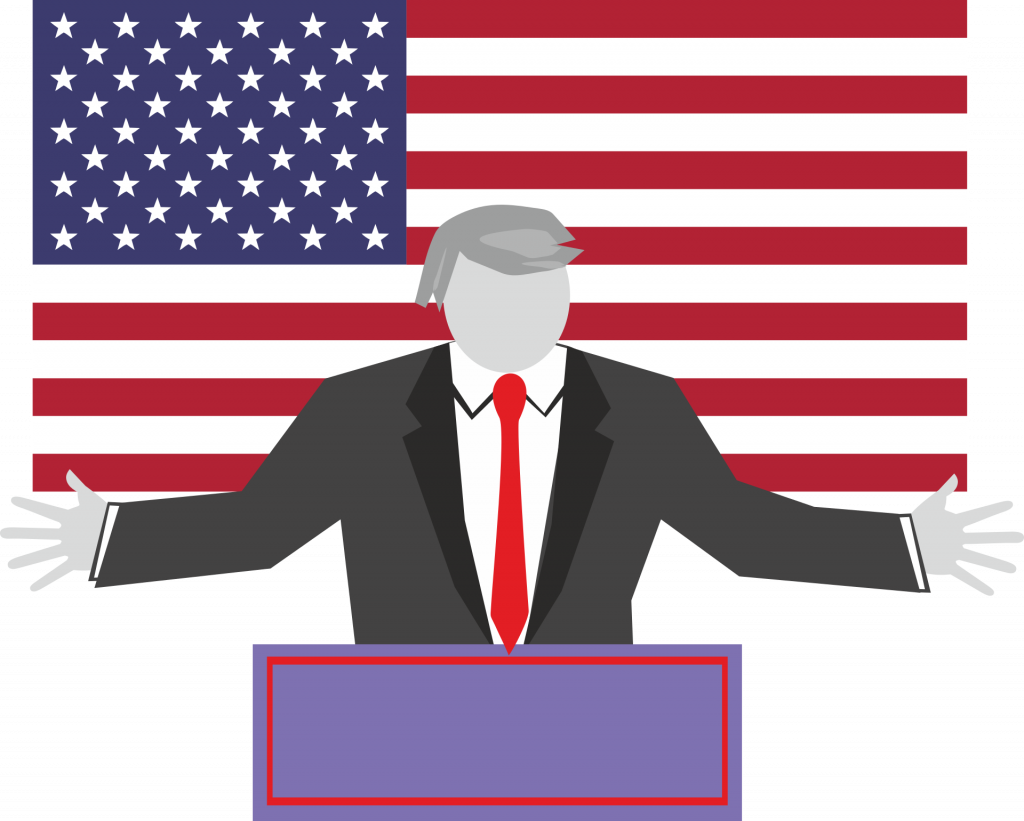A winner is just a loser who tried one more time.
―George M. Moore Jr.
When we mention Trump in our articles, we get two responses.
It seems some of our readers love him. Some really dislike him.
I guess the point is he gets a reaction. In a country where 66% is a record voter turnout (2020), getting reaction is an advantage.
Meanwhile, is the market salivating at the prospect of a Trump win? The US dollar is strengthening. Is a down payment being made on his potential victory?
The US stock market loves what it sees in the current Presidential election.
The question is who will end up winning?
(h/t >@philrosenn) >pic.twitter.com/E0FhEBi2QU
— Anthony Pompliano
(@APompliano) October 15, 2024
Well, those who can’t stand Trump will end up writing in: ‘Why are you supporting him?’
The point is we’re not.
We have no ability to vote in the US. Our interest here is what is best for our investors. What will drive the market forward for our particular set of opportunities.
We’re not interested in the personality contest. The good, the bad, the ugly — or the abrasive rhetoric.
One of the market drivers behind Trump comes back to what usually matters in financial markets. Incentives. Simply, he has proposed to cut the corporate tax rate to 15% for companies making their products in the US. That will drive a lot of economic activity. When US markets get a boost, the rest of the world gets a lift.
He has also proffered support and endorsement for certain industries that we like. Friend-shored manufacturing, bank deregulation, innovative technology, and new transport (such as autonomous vehicles and eVTOL).
Of course, tax policies need to get through Congress. Given past experience, a lower corporate tax rate is something that could pass.
Trump has also proposed new tariffs on exports to the US
These tariffs have come under a lot of criticism. They could raise costs and damage relationships with trading partners.
For example, how will they affect European manufacturers? The US remains the largest consumer market. It’s an important market for luxury brands like Mercedes-Benz [ETR:MBG].
The tariffs may actually see European firms move more production to the US. For example, my Mercedes was assembled in Alabama.
Mercedes-Benz US International manufacturing plant in Tuscaloosa, Alabama.
Source: Mercedes-Benz Group
A lot of the discussion on tariffs neglects the fact that they are actually prevalent across the world.
The EU, for example, has a standard 10% import duty on foreign cars. This year, it opted to increase these levies up to 45% on Chinese EVs.
BYD has responded by saying they plan to follow the Mercedes strategy and make more of the cars they sell in Europe, locally in Europe.
Much of the argument for tariffs comes down to labour costs and standards. Even after years of very rapid growth, wages in China are only around 27% of what they are in the US. When it comes to manufacturing jobs, the gap is likely much wider.
Without correcting the cost differential across the economies, clearly US manufacturing would continue to move wholesale to China.
Further, there’s the issue of governments subsidising new and critical industries. Again, tariffs are used to protect local industries from foreign competitors that are given state-based advantages.
In fact, the only way to have complete free and fair global trade would be when every country has similar levels of wages. This is why the EU has proven relatively successful as a trading bloc. The wage differentials across the member states are not vastly different, and they all subscribe to common standards.
In any case, will Trump’s proposed 10% blanket tariff (and potentially more on China) have wider impact on a global value strategy?
When you’re investing in developed markets for the long run; probably not.
For the most part, markets revolving around local real estate, materials, utilities, and energy may actually join a wider market jump.
Prediction market as at 20 October, 2024. Source: Polymarket
Of course, odds and the market may be wrong. Harris could win. There could be a readjustment.
But I wouldn’t worry too much. The composition of the American White House does not have that much impact on financial markets over the long run.
There are more relevant incentives like the return of liquidity as interest rates fall and the resurgence of business profits.
In fact, those particular factors account for more of the ‘down payment’ we’re seeing in market growth. As opposed to whether Trump or Harris win next month.
I wouldn’t get too lathered up about either outcome.
Regards,
Simon Angelo
Editor, Wealth Morning
(This article is the author’s personal opinion and commentary only. It is general in nature and should not be construed as any financial or investment advice. Please contact a licensed Financial Advice Provider to discuss your personal situation. Wealth Morning offers Managed Account Services for Wholesale or Eligible investors as defined in the Financial Markets Conduct Act 2013.)
